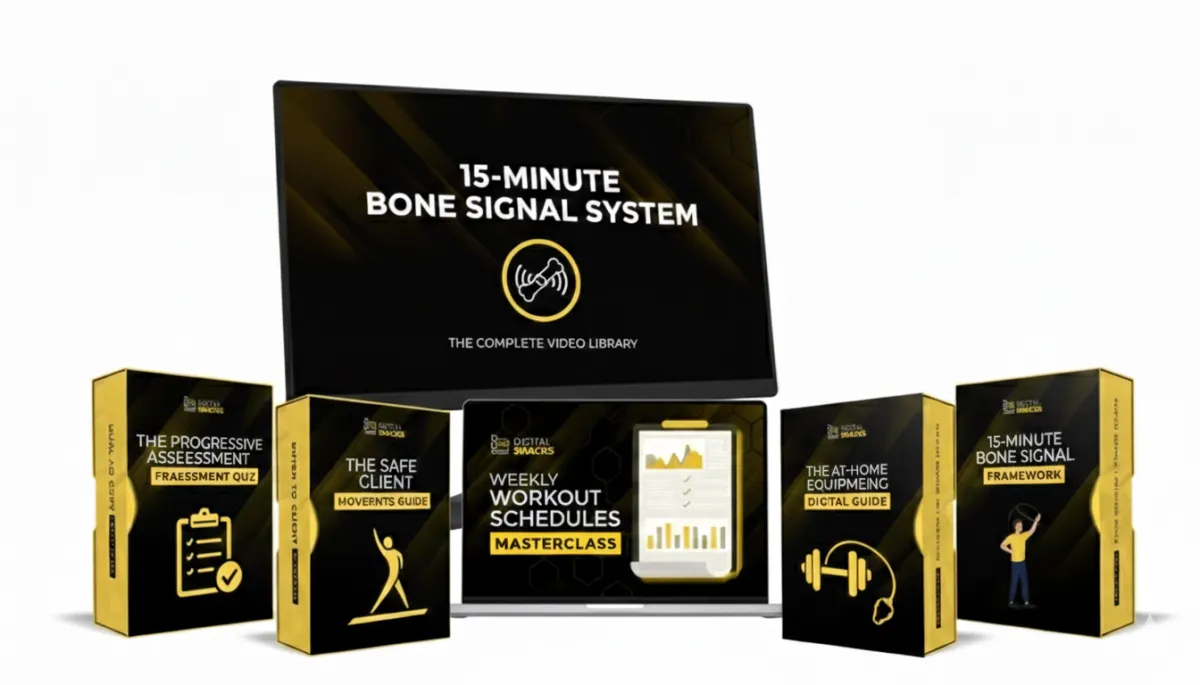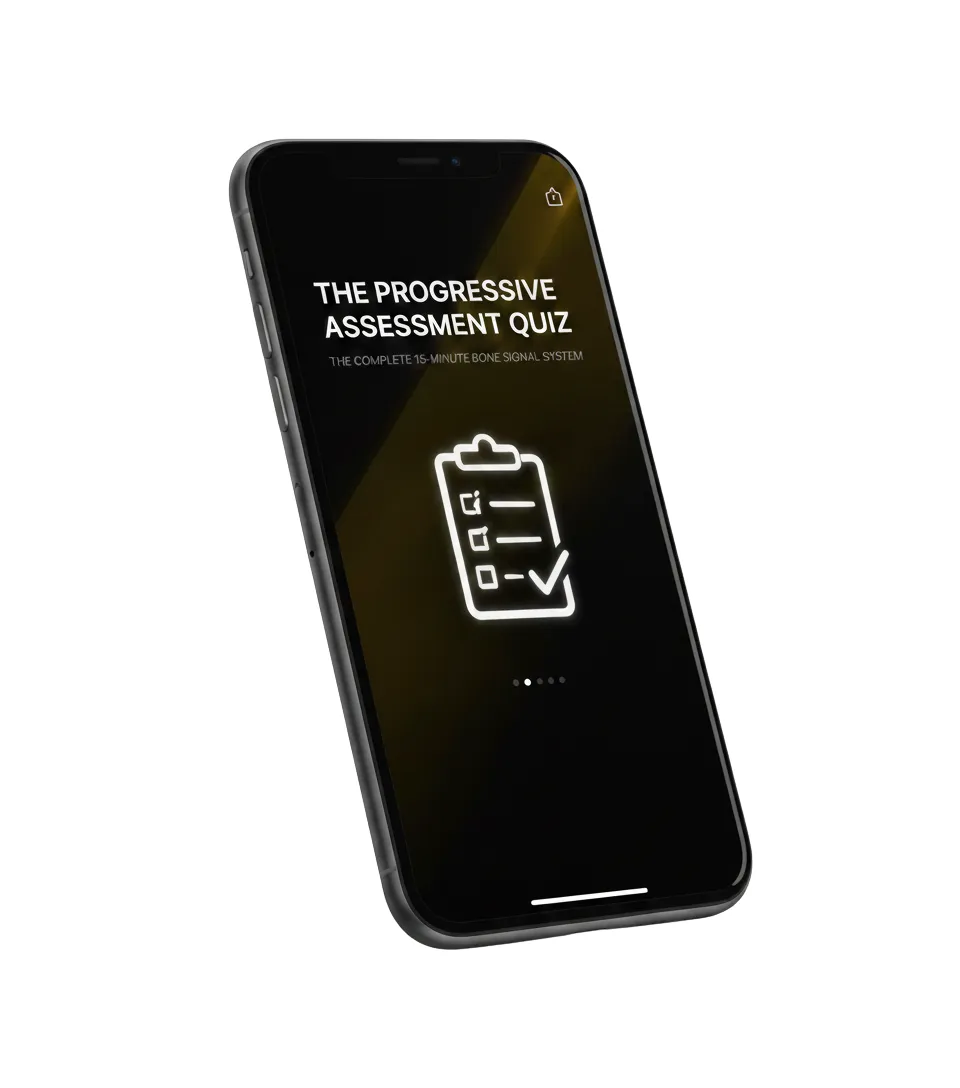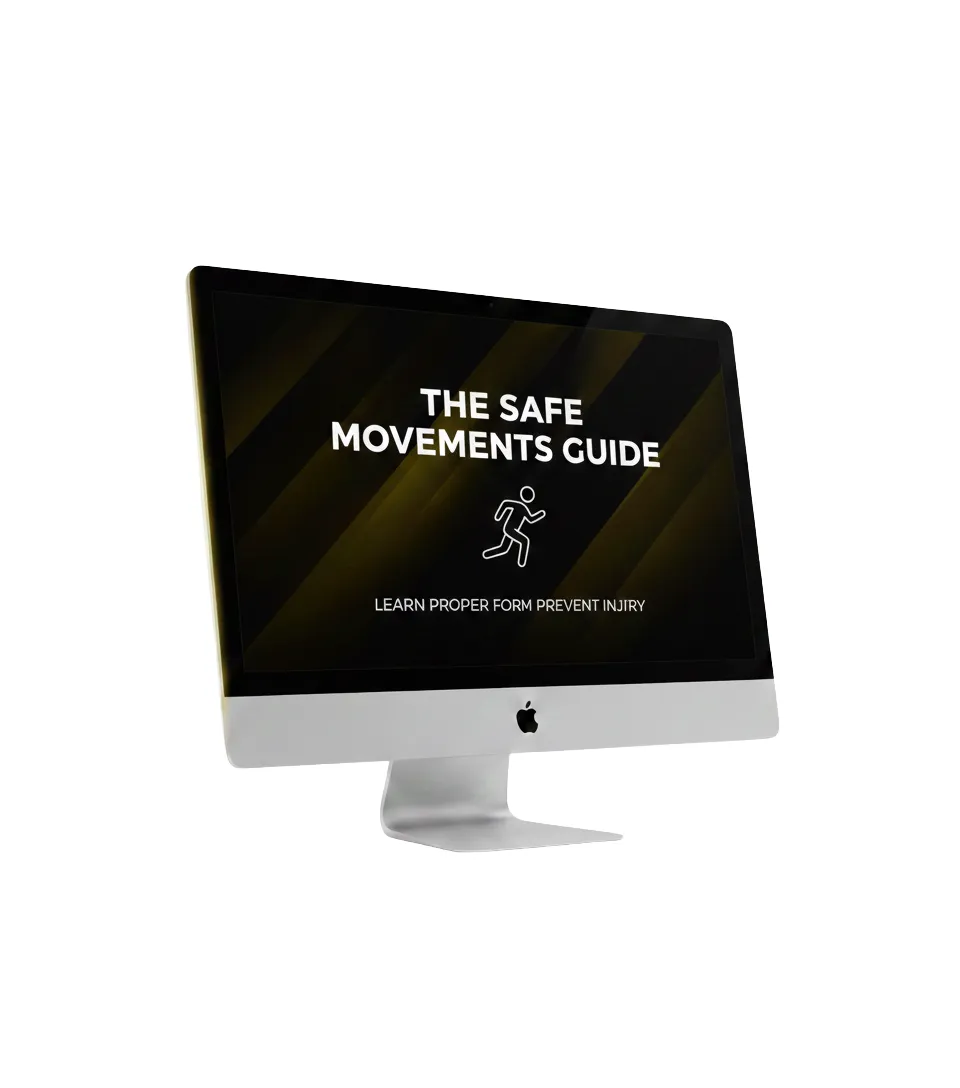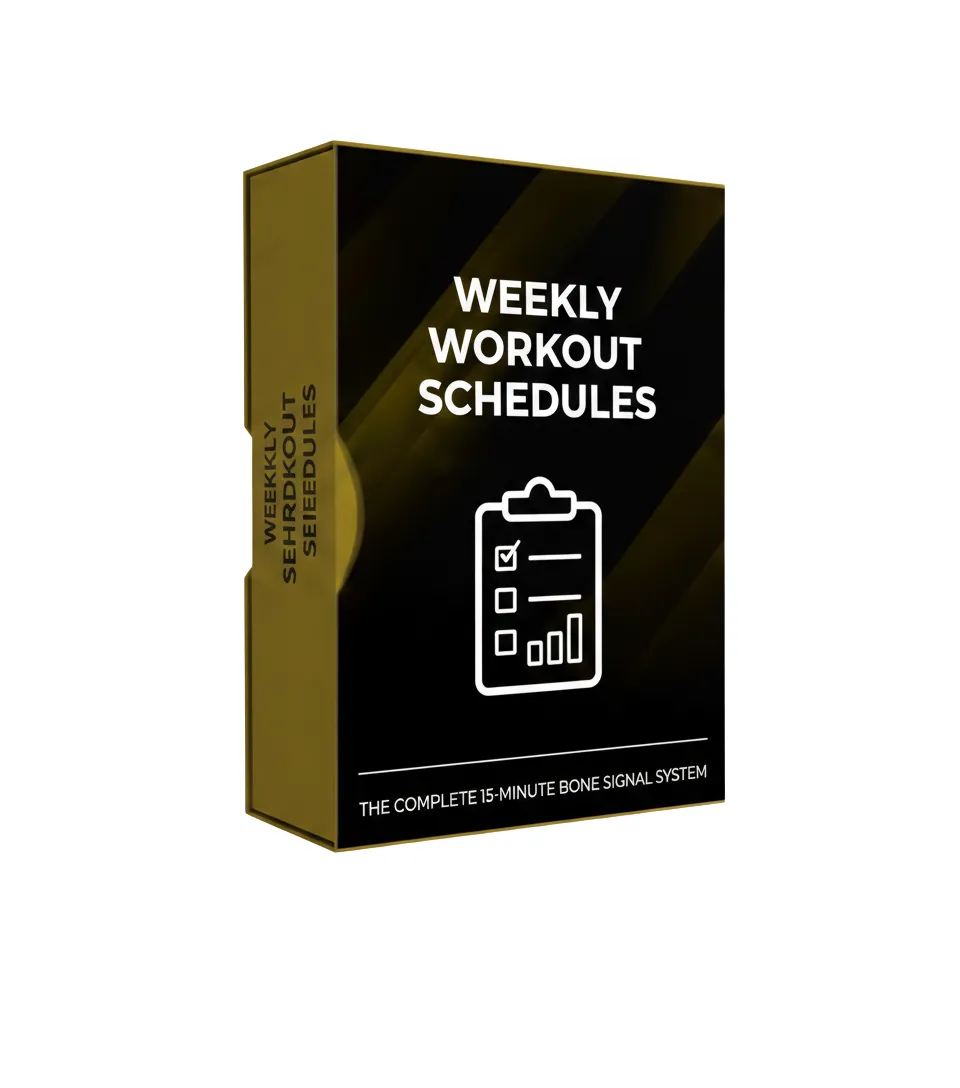For people over 50 wanting better bone health…
How To Build Stronger, Better Bones Using This Simple 15-Minute Bone Signal System
Without additional medication, invasive treatments, or living with the constant fear of falling

Here's a snapshot of what you're getting in 15-Minute Bone Signal System
What is the 15-minute Bone Signal?
The 15-Minute Bone Signal is a new, counterintuitive approach that people over 50 can take care of their bone strength and health…
This science-backed system can help even if you’ve been diagnosed with osteoporosis or weak bones…
See, as you age, your bones can become more fragile and easier to break...
While most people think you need medication with heavy side effects…
There’s a new, counterintuitive way to support bone health…
In fact, research shows bone health is NOT about how long you exercise…
If you want better bones, you need to activate what scientists call “osteoblast”...
Osteoblasts are cells that help rebuild your bones…
There are SAFE and strategic body movements anyone can do at home…
These easy movements “wake up” the dormant bone-building cells in just 15 minutes a day…
Because these movements are designed to send the right signal to your bones…
Helping you restore your balance, prevent injuries, and have a better posture…
This is the 15-Minute Bone Signal method
Just $27 Today
Here’s How The 15-Minute Bone Signal Method Can Help You
>> Forget going to the gym or doing hard workouts, you can do these simple, safe movements from the comfort of your home, using just a chair and the floor <<
Step 1
Take a simple 5-minute quiz
The quiz will reveal exactly what type of signal you need to send to your bones based on your situation
Step 2
Follow a simple 15-minute a day movement plan to boost your bone health
These are simple and SAFE movements anyone can do at home, even without equipment or going to the gym - and without risking falling or getting injured
Step 3
Wake up the dormant “bone-building” cells
Let the bone-building cells work for you, helping you increase your wellbeing day after day - you’ll start to feel different in just 3-5 days of doing this simple routine
Step 4
Better balance, posture, and prevent injuries
Eliminate that nagging fear of falling and getting injured, knowing that your bones can now sustain your body and allow you to live a happier, healthier life
Yes - these SAFE and SIMPLE movements can actually help you regain your balance, stability, and improve your posture
These simple movements are designed for all levels of bone health…
They’re SAFE (so you don’t increase your risk of injuries or fall)...
And anyone can start doing them at home, in just 15 minutes a day, without even needing equipment…
If you have a normal kitchen chair to help you stay stable, you can easily do these exercises…
And naturally progress as you start getting stronger and building muscle…
Here’s everything you get when you join the 15-Minute Bone Signal System

✓ The Complete 15-Minute Bone Signal System Video Library
Beginner, intermediate, and advanced levels
Clear demonstrations with form cues
Modifications for different mobility levels
✓ The Progressive Assessment Quiz
Take this quiz to uncover your starting level
Get personalized recommendations
Track your progress over time


✓ The Safe Movement Guide
Which exercises to AVOID with osteoporosis
Proper form illustrations
Common mistakes and how to fix them for your safety
✓ Weekly Workout Schedules
Done-for-you light and heavy training plans for each level
Know exactly what to do each day
Progressive overload built in


✓ The At-Home Equipment Guide
Get started using just a chair and your body
See when and what equipment you need as you progress
What you DON'T need to waste money on
Just $27 Today
I’m Kathyrn, living proof that the 15-Minute Bone Signal System Actually Works!

Hi, I’m Kathyrn.
My doctors told me my “bone eating” cells were making my bones look like Swiss cheese…
Weak, hollow and easy to break…
I thought I had to live in constant fear of my bones breaking…
I was given some meds…
But these meds would only SLOW down the bone-aging process…
And every time I used them, I got sick with nausea, stomach ache and I felt foggy and confused…
I thought I had to give up living a normal, healthy life and live with medications and fear…
Until I found this science-backed way to wake up the bone-building cells that were asleep…
These movements changed my life forever.
Initially, I was scared that these movements were risky or complicated…
But when I tried, I realized everyone could do them because they’re nothing like a hard gym workout…
After months of using these movements, I realized what worked best for me…
And put together this science-backed method to help people over 50 regain their balance, reduce the risk of falling and injuries…
These movements can be done in as little as 15 minutes a day…
And they’re progressive exercises designed specifically with your bone health in mind…
So that you don’t have to live in constant fear or forced to take to medications with heavy side effects…
Each protocol and routine I share is backed by science…
And I’m living proof that having weak bones doesn’t mean you can’t live a normal life anymore…
And to make things easy for you, I’m attaching my unconditional “bone-health” money back guarantee…
Unconditional “Better Bones Or Money Back” Guarantee
.

I'm so confident that the progressive resistance protocols in The 15-Minute Bone Signal
System can help you build strength, improve balance, and move through your day without fear of falling...
That I'm willing to let you test every exercise, every video, and every technique 100% RISK FREE.
That's right - I’m willing to give you an unconditional money-back guarantee for full 90 days because ultimately, you can decide whether this is the right thing to do for your health only when you’re inside the program.
In case you wanted your money back, just email me at [support email] and you’ll get every single dollar back.
No questions asked, no shenanigans.
Join The 15-Minute Bone Signal System today at no risk.
Just $27 Today
Frequently Asked Questions
Everything you need to know about the 15-Minute Bone Signal System
Q: Will this really work if I've never exercised before?
A: Yes. The Level A program starts with chair-assisted exercises and bodyweight movements. If you can stand up from a chair, you can do this program.
Q: I'm 75 years old. Am I too old for this?
A: Not at all. The oldest woman using this system is 82. The key is starting at the right level and progressing gradually.
Q: Do I need to buy expensive equipment?
A: No. You can start with bodyweight exercises. As you progress, you might want to invest in light dumbbells ($20-40) and resistance bands ($15-25). Everything can be found on Amazon or at any sporting goods store.
Q: How long until I see results?
A: Most women report feeling stronger and more confident within 2-3 weeks. Improved balance typically shows up within 4-6 weeks. Measurable changes in bone density would require a DEXA scan after 6-12 months of consistent training (this varies by individual).
Q: Can I do this if I've already had a compression fracture?
A: This program is designed to be safe for women with osteoporosis, but if you've had a recent fracture, you should consult with your doctor before starting any new exercise program.
Q: What if I can't do 15 minutes straight?
A: That's fine! You can break it up into smaller sessions (5 minutes, 3x per day). The key is consistency, not perfection.
Q: Is this better than going to a physical therapist?
A: This program is based on the same principles that physical therapists use, but at a fraction of the cost. That said, if you have access to a PT who specializes in osteoporosis, working with them in person can provide additional personalized guidance.
© Copyright 2025 15-Minute Bone Signal System™ - All rights reserved
This site is not a part of the Facebook website or Facebook Inc. Additionally, this site is NOT endorsed by Facebook in any way. FACEBOOK is a trademark of Facebook Inc.
This site is not a part of the Google or Youtube website or Google Inc or Youtube. Additionally, this site NOT endorsed by Google or Youtube in any way. GOOGLE & YOUTUBE are a trademark of ALPHABET, Inc.